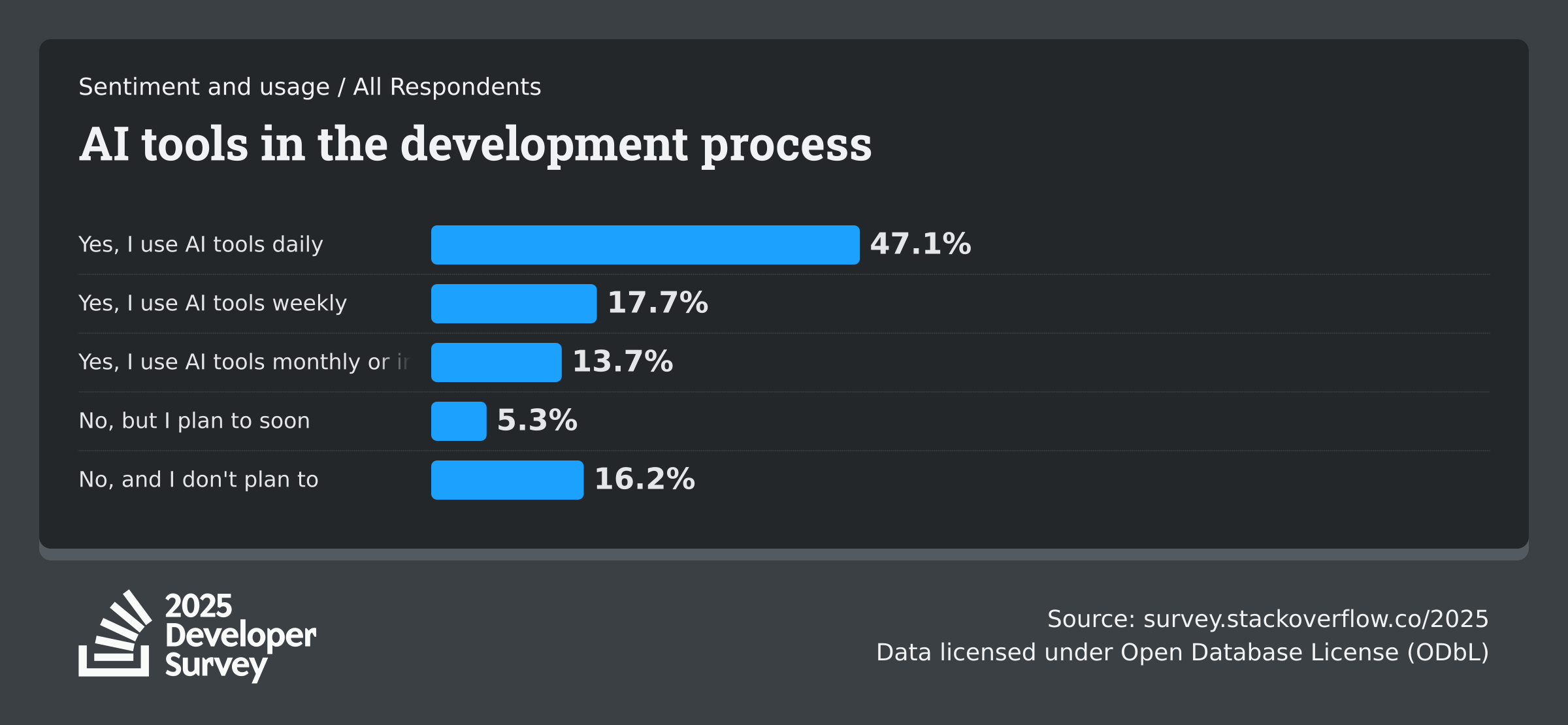82% of Developers to Adopt AI Coding Tools by 2025 as Enterprises Boost Investment

Enterprise leaders are increasingly championing the widespread adoption of AI coding tools within their teams, a trend that prompts questions regarding its unique position in corporate investment. As Allison Barr Allen queried in a recent social media post, "> Is AI Coding one of the first products where leaders are actively encouraging their teams to use it more (which also means spending more)?" This active encouragement is underpinned by significant productivity gains and strategic investments, positioning AI coding as a pivotal area for corporate expenditure and operational enhancement.
The integration of AI into software development is accelerating rapidly, with projections indicating that 82% of developers globally will adopt AI-assisted coding tools by 2025. This widespread embrace extends to organizations, where 85% have already integrated AI agents into at least one workflow. The market for AI agents is forecast to reach $7.38 billion in 2025, nearly doubling from 2023, with 92% of organizations planning to significantly increase their AI investments. Tools like GitHub Copilot and Cursor are leading this charge, demonstrating substantial user growth and revenue.
Companies are actively encouraging this adoption due to tangible benefits. Developers report time savings of 20-25% on common tasks, with some enterprises like Mailchimp experiencing up to a 40% acceleration in development speed. These tools streamline boilerplate generation, debugging, and test case creation, allowing developers to reallocate saved time to higher-value activities such as system design and collaborative problem-solving. Leaders recognize that AI augments human capabilities, fostering innovation and improving overall code quality.
The shift reflects a move from experimental use to strategic deployment, where AI transitions from a consultative resource to an active participant in code generation. While the benefits are clear, enterprises are also focusing on robust governance and human oversight. Industry experts emphasize the necessity of a "human in the loop" to refine, validate, and ensure the quality and security of AI-generated code. This balanced approach aims to maximize efficiency while maintaining high standards and addressing potential challenges.
As AI coding tools continue to evolve, their role in shaping the future of software development is undeniable. The active encouragement from leadership and the corresponding increase in investment underscore a collective belief in the transformative power of AI to drive efficiency, foster innovation, and enhance developer productivity across industries.